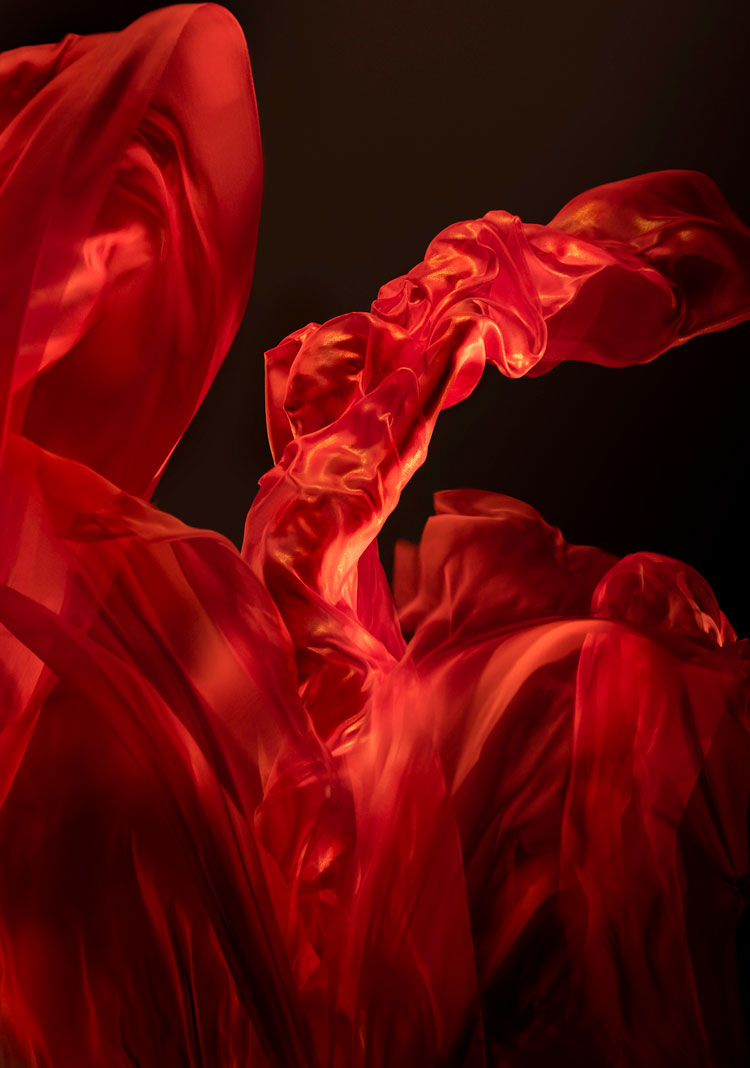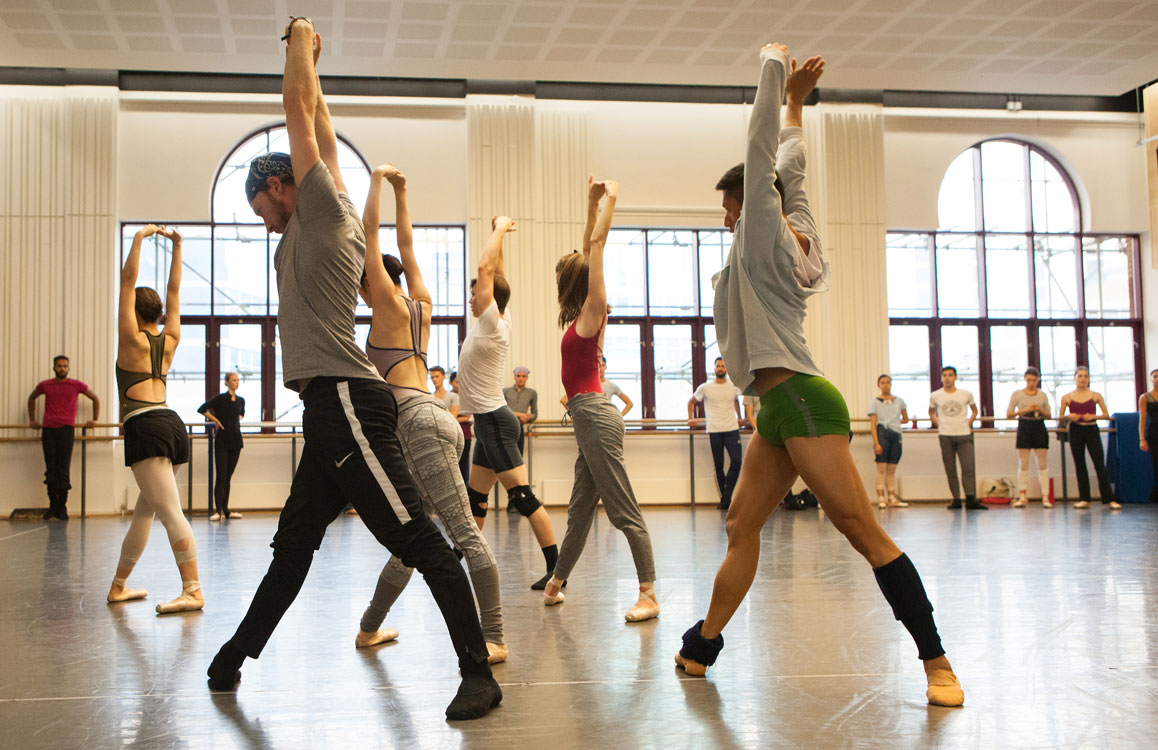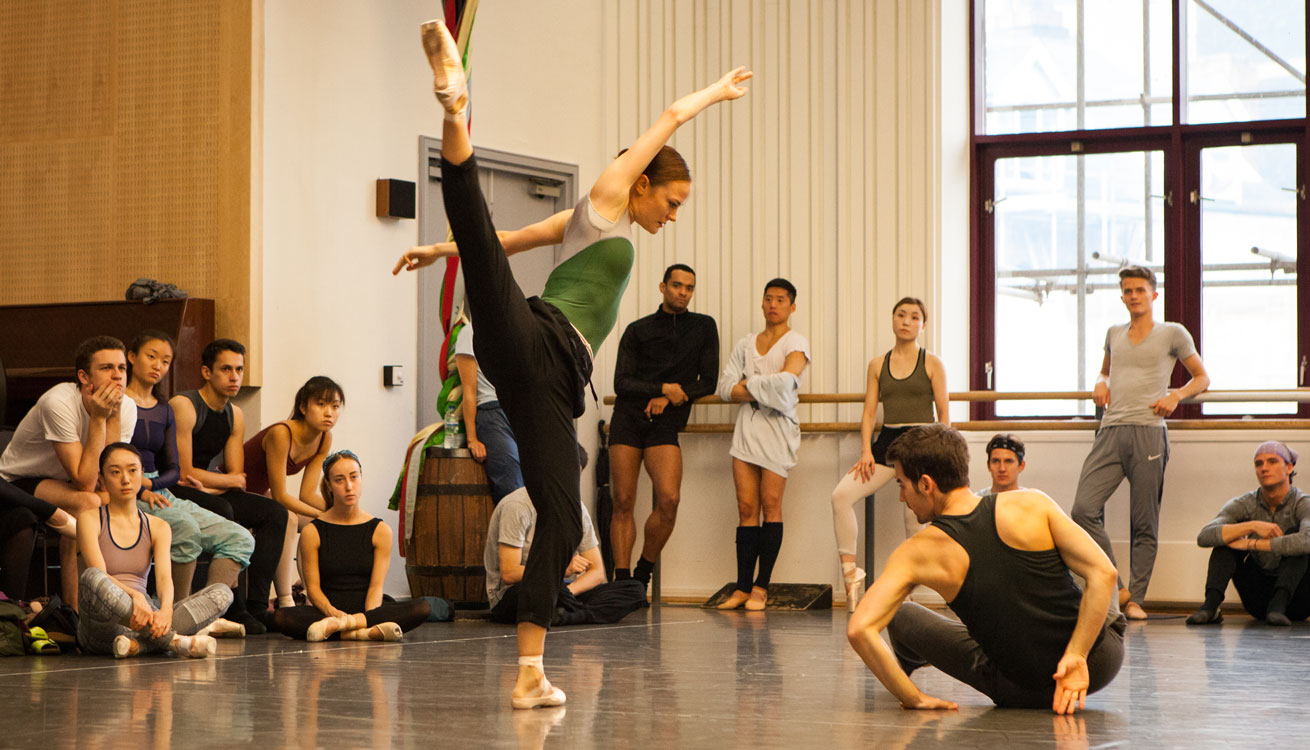Kate Whitley: igniting dance with her music
Sarah Kirkup
Friday, October 19, 2018
The composer-pianist who co-founded The Multi-Story Orchestra has written the music for a new Birmingham Royal Ballet work as part of the ‘Ballet Now’ initiative

‘It’s really important that we break out of closed groups’. If this is Kate Whitley’s overriding aim as a composer, she is surely fulfilling it. The South London-based Cambridge University graduate has, since 2011, been co-Artistic Director of The Multi-Story Orchestra which, from its base in a Peckham carpark, takes professional performances to local schools and further afield. Her concert piece, Sky Dances, was performed this summer at Trafalgar Square as part of a programme that brought together the LSO, the Guildhall School of Music and Drama and 70 young musicians from East London. She has also written a children’s opera, Paws and Padlocks, for Blackheath Halls in 2016, and I am, I say (also 2016, reviewed 5/17) for soprano and bass soloists, children’s choir and orchestra.
Writing for mixed-ability groups is one of Whitley’s passions (‘Giving people who might only be Grade 1 on the violin the chance to play in what can sound like a professional orchestra is incredible’), but so, too, are any other opportunities to collaborate with people whose disciplines and backgrounds are different to her own. Which perhaps explains her ongoing desire to write music for dance, most recently Ignite, one half of the programme Fire and Fury that’s currently being toured by Birmingham Royal Ballet,

Whitley’s first encounter with dance came in 2013-14 when she was appointed Music Fellow at Rambert Dance Company. It was, she admits, a baptism of fire. ‘Some people who’ve written for dance have at least done ballet as a kid, but I went in blind,’ she says. ‘I knew that composing for dance would be a collaboration between people who speak different languages, but I was quite unprepared for how much that was going to be the case.’ But it was a challenge she was eager – and indeed somewhat qualified – to overcome, having spent considerable time working in schools: ‘Working with kids is similar to working with dancers or choreographers who aren’t trained in classical music,’ she says. ‘You have to find ways of communicating, and I really like that. It gives you an opportunity to explain the thing you love.’
Whitley soon fell into her groove at Rambert, helped by the fact that all the choreographers she worked with were company dancers who were being supported by the company in their development as choreographers – in other words, they were learning too. She was also fortunate enough to meet dancer-choreographer Malgorzata (‘Gorzata’) Dzierzon early on in her tenure, and continued to work with her once she left Rambert (their collaboration Flight toured the UK in 2016). Did Whitley feel that her creativity was hampered at all during these early ventures? ‘I had complete free rein as a composer,’ she asserts, without hesitation. But, she admits, she did find it interesting to see how her music could be interpreted by choreographers. ‘I did one piece with Gorzata, and the music was winding and free, without any clear pulse. But she choreographed a canon over the top of it, with very clear beats for the dancers which you couldn’t actually hear in the music. I couldn’t believe it was going to work, but it did. It was such a different way of hearing my music.’

There can be an assumption that, much like ballet conductors, dance composers are subservient to the whim of the dancers, and that too many compromises have to be made. But Whitley (like Cheryl Frances-Hoad, another former Rambert Music Fellow who was interviewed for Gramophone) doesn’t see her role like that at all. ‘Writing for dance hasn’t made any difference to my creativity,’ she says. ‘With any commission, you have perimeters. And when you write for ballet, your music gets heard so many times. With works like Sky Dances, it’s just that one day.’
The level of exposure granted to dance composers owing to the number of performances a work is given is surely an incentive to encourage more to the field. And with organisations such as Rambert, and now Birmingham Royal Ballet, endorsing the role of the dance composer, the time is ripe for more budding dance composers to delve into this artistically satisfying medium. In the case of Birmingham Royal Ballet, the company is, in association with Sadler’s Wells, spearheading an initiative called Ballet Now, which aims to create two new one-act ballets per year, for five years. And it’s Ballet Now that brought Kate Whitley and the choreographer Juanjo Arqués together for Ignite, which comes to Sadler’s Wells later this month.
‘It was like a blind-date situation,’ Whitley laughs. ‘We didn’t know each other at all. He had come up with a fully formed plan for the piece with dramaturg Fabienne Vegt. But,’ she hastens to add, ‘it wasn’t a case of “This is what we want you to do”. It was more a set of ideas and themes.’ The inspiration for Ignite was Turner’s painting, The Burning of the Houses of Lords and Commons, which, explains Whitley, led to the concept of three distinct sections: the first, fire, as seen from a distance; the second, the reflection of fire in the water; and the third, the act of burning itself. ‘I knew each section needed to be 10 minutes, and that the score was for full orchestra, but it was no more prescribed than that,’ she recalls. And, in fact, these descriptive perimeters were, if anything, an inspiration to Whitley: ‘They, and Juanjo and Fabienne, were helping me move along a trajectory that I was on anyway,’ she says.
As she had already discovered at Rambert, Whitley found that working with a choreographer could be truly a collaborative experience. ‘I’d do drafts, and share them, and then he’d feed back what he thought,’ she recalls. ‘One of my favourite conversations with Juanjo was about the slow movement – he loved it and said it gave him goosebumps, but he said he felt like it could carry on for longer. But he also said that if that ended up ruining it, then I shouldn’t change a note. It was so nice having the sort of conversation I’d normally have in my own head with another person.’
Much in the same way Whitley had seen choreographers hear her music differently at Rambert, so Juanjo Arqués’s movement has, in places, taken her score in another direction. ‘I thought that, in the slow movement, where the music is broad and spacious, the choreography would be also be "big",’ she says. ‘But in fact it’s mostly an intimate duet, and actually bringing a sense of grandeur to this interaction between two people is really moving.’
Whitley is keen to collaborate with Arqués again in the future and, indeed, to write more music for dance. But she also has no intention of turning her back on her educational work or the composing she does for mixed-ability groups, nor would she be averse to more large-scale commissions for professional groups in a similar vein to Speak Out, her piece to words by Malala Yousafzai that was premiered by BBC NOW and Chorus on International Women’s Day in 2017. ‘Everything I do is satisfying in different ways,’ she says. ‘I wouldn’t want to lose any one aspect. One feeds the other, and I love having that mixture in my life.’
‘Ignite’ is performed as part of ‘Fire and Fury’ at Sadler’s Wells on October 30 & 31 – visit sadlerswells.com; for more information on Kate Whitley, visit katewhitley.net











